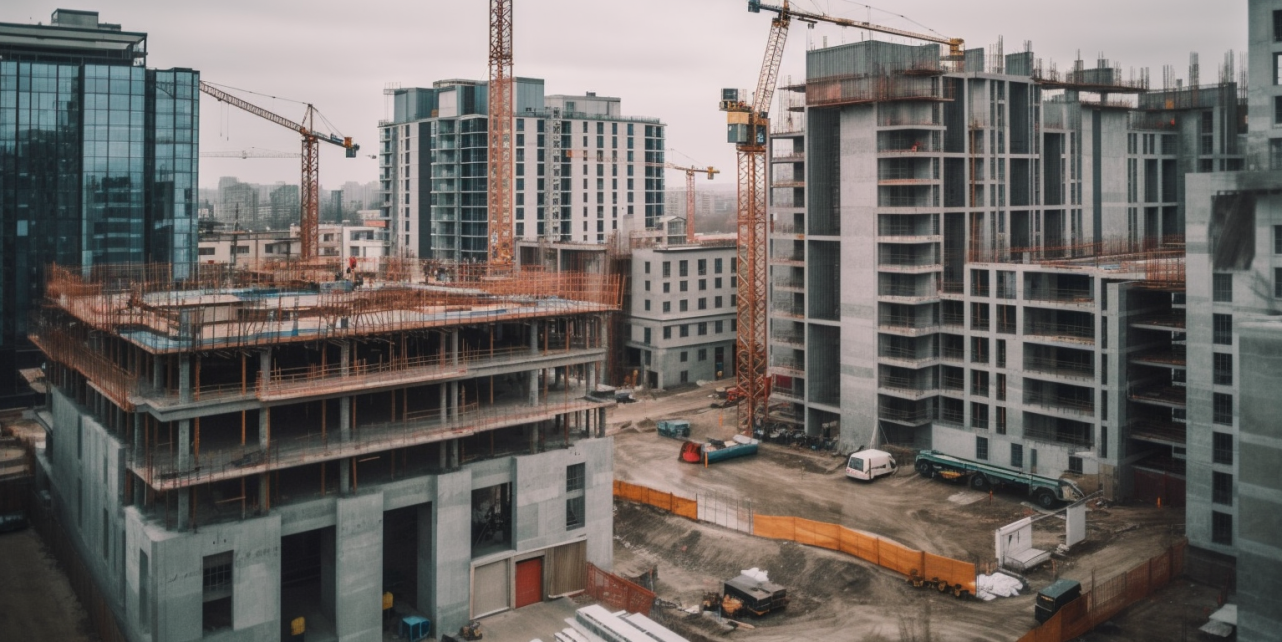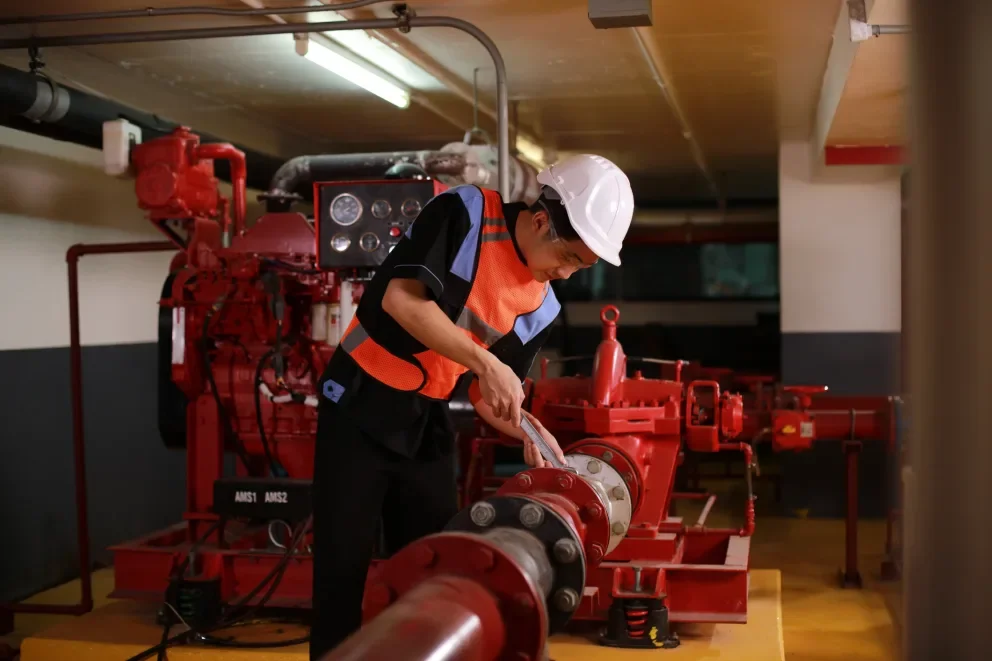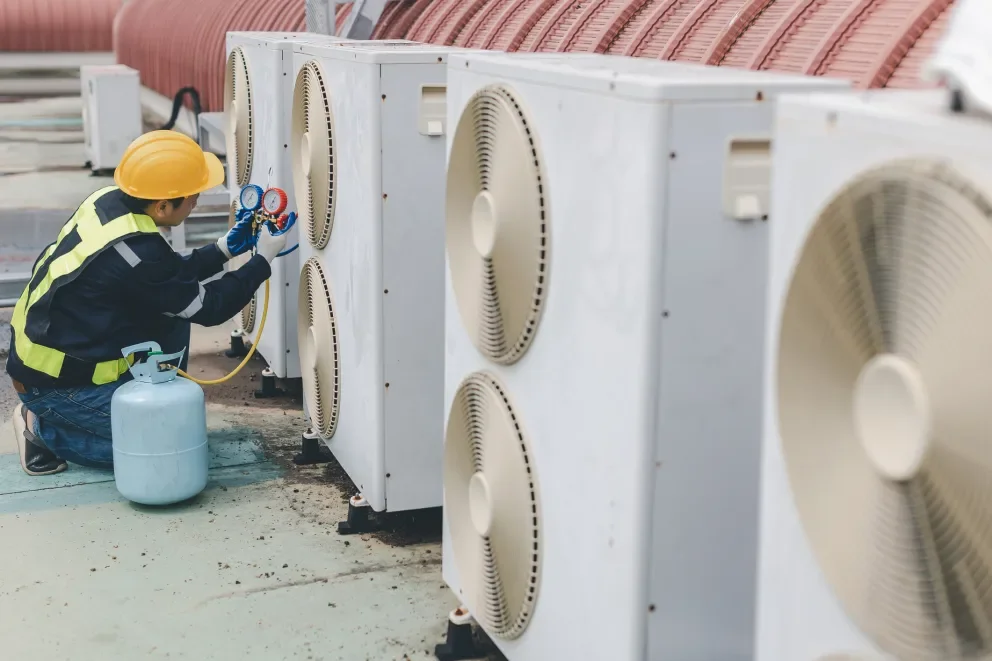If you want to build an apartment complex, budget about $40 to $60 per square foot. Depending on the size, complexity, and design of the complex, costs can range from $50,000 to upwards of fifteen million dollars.
The most significant expense associated with an apartment complex is the cost of land and permits. It’s essential to factor in the cost of purchasing the land and obtaining zoning permits and approval before construction begins. Other costs include labor, materials, and construction equipment. A general contractor typically organizes and oversees the entire process.
Depending on the type of complex, additional fees may be charged for extensive landscaping, surface parking lots, or underground parking garages. The contractor can provide a detailed estimate that outlines all of the items, so you can determine an accurate cost. Costs may fluctuate due to unforeseen changes as the project progresses.
Although there is no one-size-fits-all goal for building an apartment complex, the estimated timeframe is generally between three months and a full year from conception to completion, depending on the size of the project.
The cost of an apartment complex can vary significantly based on features and regional location. Consider budgeting the maximum amount you can spend, keeping in mind that unexpected challenges may arise as the project progresses. Working closely with a contractor will ensure that your budget is met and that construction runs as smoothly as possible.
Preparing a Budget for Building an Apartment Complex
Preparing a budget for building an apartment complex requires an investment of $40-$60 per square foot. Land costs, zoning permits, labor, and materials are additional expenses to consider, and certain features such as extensive landscaping or parking lots may require additional fees. Depending on the size and complexity of the project, building an apartment complex can take anywhere from three months to a year to complete, so budgeting appropriately is essential. Unexpected changes can affect costs, so work closely with a contractor and include buffer costs in the budget to ensure the project is completed on time and on budget.
Cost of Land and Permits for an Apartment Complex
The cost of building an apartment complex is dependent upon the size, complexity, and design of the project. Land and permits are the most significant expenses and range from $50,000 to millions of dollars. Additional fees may be charged for features such as landscaping, surface parking lots, or underground parking garages. Working with a contractor is essential to determine all necessary costs and to ensure the project can be completed within budget.
Calculating the Cost of Labor, Materials, and Equipment for an Apartment Complex
When calculating the cost of building an apartment complex, one must consider labor, materials, and equipment. The investment of $40-$60 per square foot is the base from which all other costs are built. Labor costs vary depending on the quantity and complexity of the project, and materials can range from simple lumber to more expensive stonework. Depending on the complexity of the project, additional equipment such as cranes or scaffolding may be necessary, which increases the overall cost. A contractor can provide an accurate estimate for all associated costs to ensure the budget is met.
Additional Fees for Extensive Landscaping, Surface Parking Lots, and Underground Garages for an Apartment Complex
When budgeting for an apartment complex, it is essential to factor in additional fees for the installation of landscaping, surface parking lots, and underground garages. Extensive landscaping and the construction of a surface parking lot or an underground garage can add significantly to the cost of the project and should be discussed with a contractor to ensure an accurate estimate. The cost of materials, labor, and equipment should also be included in the budget to ensure the project is completed on time and within budget.
Examining an Estimate from a Contractor for an Apartment Complex
Examining an estimate from a contractor is essential when building an apartment complex. The estimated cost of the project should include the investment per square foot, land costs, permits, labor and material costs, and additional fees for landscaping, surface parking lots, or underground garages. It is important to review the estimate with a contractor to ensure that all facts and costs have been considered and to confirm that the budget is sufficient. Once the estimate is reviewed and accepted, the contractor can begin work on the apartment complex with confidence that the costs will be met.
Accounting for Unforeseen Changes as Construction Progresses on an Apartment Complex
As construction progresses on an apartment complex, unforeseen changes can occur that may increase the cost of the project. Budgeting for a contingency fund is advisable to cover additional labor, materials, and equipment costs. It is also important to regularly review changes with a contractor to ensure the project does not exceed the budget. Regular inspections will help to ensure that the construction meets local codes and regulations. If the project is not on target, it may be necessary to increase the budget to cover additional costs. With proper management and oversight, the contractor will be able to complete the apartment complex according to the project timeline and within budget.
Estimating the Estimated Timeframe for Building an Apartment Complex
Estimating the estimated timeframe for building an apartment complex involves accounting for land and permit costs as well as labor, materials, and construction equipment. On average, it takes three months to a full year from conception to completion, depending on the size of the project. Unforeseen changes in materials or labor costs may extend the timeline, so it is important to include a contingency fund to cover additional expenses. Monitoring the construction process regularly will ensure that the project is completed on time and within budget.
Managing Cost Variations Based on Completion Features and Regional Location for an Apartment Complex
To manage cost variations, budget the maximum amount available based on the size, complexity, and design of the apartment complex. Consider the costs of land and zoning permits, labor, materials, and construction equipment as well as additional fees for landscaping, surface parking lots, or underground garages. The regional location and completion features may significantly affect the total cost, so account for a contingency fund to cover unexpected costs and ensure the timeline is met. Working closely with a contractor is integral to determining an accurate cost estimate and keeping the project within budget.
Assessing Expenses Such as Utility Hookups for an Apartment Complex
Assessing expenses such as utility hookups for an apartment complex requires careful consideration of the size, complexity, and design of the project. Utility hookups can include electricity, water, gas, and sewer. Calculating the costs of these items requires an understanding of the regional location and any associated fees. The cost of materials and labor must also be factored in, as well as additional expenses, such as underground parking garages, landscaping, and surface parking lots. Working with a contractor to obtain an accurate estimate is essential to ensure the budget is sufficient to cover all costs associated with the project.
Working with a Builder to Ensure the Budget is Met for an Apartment Complex
To ensure the budget for an apartment complex is met, it is essential to work with an experienced contractor to determine all associated expenses. This includes land and permit costs, labor and materials, and additional fees for landscaping, parking lots, and underground garages. An accurate estimate is essential to ensure the budget is satisfactory and that the timeline is met. Monitor the project regularly and have a contingency fund available to cover unexpected costs. By working closely with a builder, you can confidently complete the project on time and within budget.
Key Takeaways
When preparing a budget for building an apartment complex, one must consider the costs of land and permits, labor, materials, and construction equipment. Additional fees may be charged for features such as landscaping, surface parking lots, or underground garages. Budgeting the maximum amount available is essential, taking into account that regional location and completion features may affect the cost. Working with a contractor to obtain an accurate estimate and including a contingency fund for unforeseen expenses is key to ensuring the project is completed on time and within budget.



